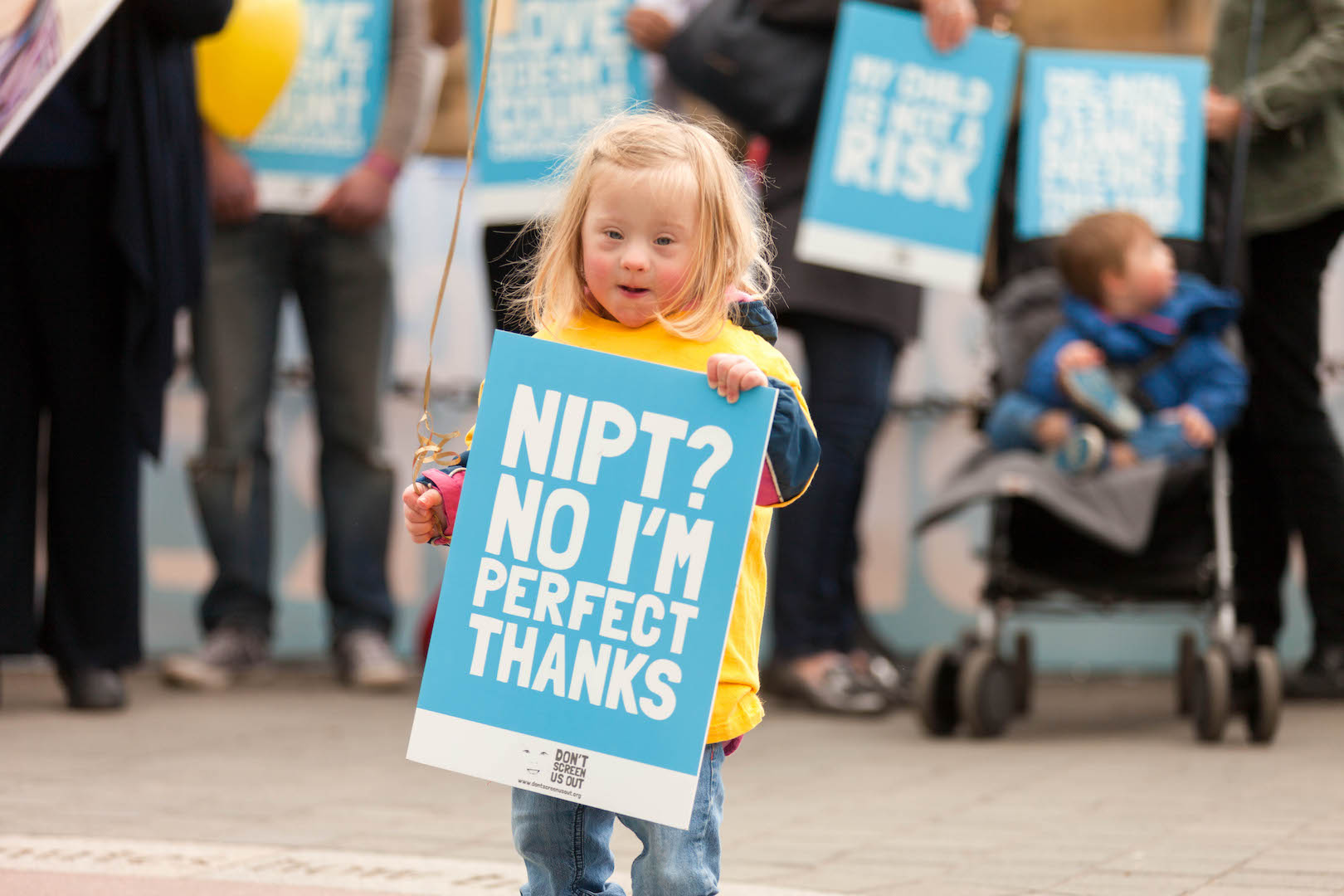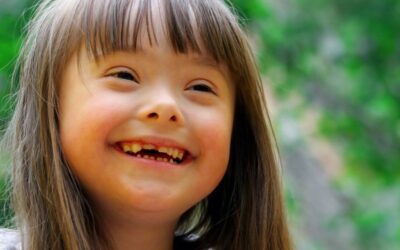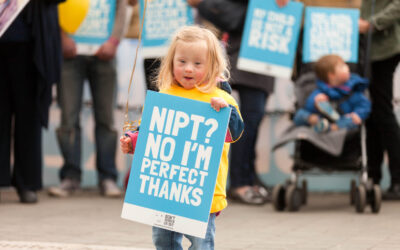Press release for immediate release
84% increase in abortions where baby had Down’s syndrome in Scotland, disability group call on Scottish Government to undertake urgent inquiry
31 May 2023 – Abortion statistics released by Public Health Scotland show that there has been an 84% increase in the number of abortions where a baby has Down’s syndrome, from 32 in 2021 to 59 in 2022.
The roll-out of new NIPT (Non-Invasive Pre-Natal) tests by NHS Scotland appears to be having an impact on the number of terminations.
Don’t Screen Us Out is calling on the Government to undertake an urgent inquiry to review the impact that Non-Invasive Pre-Natal tests on the NHS in Scotland are having on the number of babies with Down’s syndrome who are screened out by termination in Scotland each year. They then want to see the introduction of urgent reforms to the national pregnancy screening programme in Scotland to ensure the increase in the number of abortions for Down’s syndrome is reversed in Scotland.
An investigation by The Sunday Times found that the number of babies born with Down’s syndrome has fallen by 30% in NHS hospitals that have introduced this form of screening.
The figures, which were released by 26 hospital trusts in England under freedom of information laws, account for about a fifth of the hospital trusts that offer maternity services. They show that more women who have the new test go on to have abortions.
Currently in England, Wales and Scotland, there is a general 24-week time limit for abortion, but if the baby has a disability, including Down’s syndrome, cleft lip and club foot, abortion is legal right up to birth.
The actual number of abortions for Down’s syndrome are possibly higher than reported due to underreporting of disability abortion statistics. A 2013 review showed 886 abortions for Down’s syndrome in England and Wales in 2010 but only 482 were reported in abortion statistics from the Department of Health and Social Care. The underreporting was confirmed by a 2014 Department of Health and Social Care review.
LANDMARK CASE
A woman with Down’s syndrome has announced that she will be taking her landmark case against the current discriminatory abortion law, which allows abortion up to birth for Down’s syndrome, to the European Court of Human Rights.
The European Court of Human Rights could find the UK’s current disability abortion law to be in violation of human rights, which could not only have implications for the United Kingdom but also set a legal precedent for all forty-six countries that are members of the Council of Europe. The countries have a total combined population of over 700 million people.
Heidi Crowter, a 27-year-old woman from Coventry who has Down’s syndrome is challenging the UK Government over a disability clause in the current law. She is a self-advocate who has publicly campaigned for the last six years for equal treatment for those with Down’s syndrome in all areas of life. Her case has been heard in the High Court and Court of Appeal and she will now take it on to the European Court of Human Rights.
Heidi has been joined in her fight for justice by Máire Lea-Wilson from Brentford, West London, whose three-year-old son Aidan has Down’s syndrome. Máire Lea-Wilson was placed under pressure to have an abortion when a 34-week scan revealed her son had Down’s syndrome. There has been widespread coverage of Heidi and Máire’s case across major media outlets.
The UN Committee on the Rights of Persons with Disabilities has consistently criticised countries that provide for abortion on the basis of disability.
The Committee on the Rights of Persons with Disabilities’ concluding observations on the initial report of the United Kingdom of Great Britain and Northern Ireland made a key recommendation that the UK change its abortion law so that it does not single out babies with disabilities. The Government has decided to ignore this recommendation.
The Disability Rights Commission (now the Equality and Human Rights Commission) has said that this aspect of the Abortion Act “is offensive to many people; it reinforces negative stereotypes of disability…[and] is incompatible with valuing disability and non-disability equally”.
The 2013 Parliamentary Inquiry into Abortion for Disability found the vast majority of those who gave evidence believed allowing abortion up to birth on the grounds of disability is discriminatory, contrary to the spirit of the Equality Act 2010 and that it affects wider public attitudes towards discrimination. The Inquiry recommended Parliament review the question of allowing abortion on the grounds of disability and should consider repealing section 1(1)(d) of the Abortion Act which allows for it.
Disabled peer Lord Shinkwin proposed a Bill in the House of Lords that would have repealed section 1(1)(d) of the Abortion Act – the Bill was undefeated but unfortunately ran out of time. The Bill was supported by Disability Rights UK.
Polling has shown that the majority of people in England, Wales and Scotland feel that disability should not be grounds for abortion at all, with only one in three people thinking it is acceptable to ban abortion for gender or race but allow it for disability.
Heidi and her legal team have set up a CrowdJustice crowdfunding page to help raise funds for legal proceedings, pay for legal advice and prepare for the case. To find out more and to make a contribution to the case visit:www.crowdjustice.com/case/downrightdiscrimination/
Lynn Murray, spokesperson for Don’t Screen Us Out and mother of Rachel who has Down’s syndrome, who lives in Edinburgh said:
“As a mother of a 23-year-old daughter who has Down’s syndrome, I see every day the unique value she brings to our family and the positive impact she has on others around her.
It is deeply upsetting to see an 84% increase in the number of abortions where a baby has Down’s syndrome in Scotland. Already so many babies with Down’s syndrome are screened out by termination each year in Scotland and now the situation appears to be getting worse.
The roll-out of new Non-Invasive Pre-Natal tests on the NHS in Scotland appears to be having an impact on the number of terminations.
We are calling on the Government to undertake an urgent inquiry to review the impact that Non-Invasive Pre-Natal tests on the NHS in Scotland are having on the number of babies that are screened out by termination due to Down’s syndrome in Scotland each year. They then need to urgently introduce medical reforms to our screening programme to ensure that this deeply disturbing increase in the number of abortions for Down’s syndrome is reversed.
We are calling on the Scottish Government to urgently update Scottish abortion legislation to ensure that babies with Down’s syndrome cannot be aborted right up to birth, as is permitted under current legislation.”
ENDS
- For more information on the Don’t Screen Us Out campaign, see our website www.dontscreenusout.org or email info@dontscreenusout.org
- For interviews, contact Don’t Screen Us Out spokesperson Lynn Murray on 0784 0966 736 or email info@dontscreenusout.org
- The abortion statistics report and data tables from Public Health Scotland for 2022 is available here: https://publichealthscotland.scot/publications/termination-of-pregnancy-statistics/termination-of-pregnancy-statistics-year-ending-december-2022/
- Photos and videos of Heidi and other people with Down’s syndrome holding rallies to support the case that are available to be freely used by media are here:
- Heidi’s Facebook page:
- Previous news coverage featuring Heidi Crowter:
- Recordings of media interviews on the BBC, ITV, Sky etc are available here: https://youtube.com/playlist?list=PLG6Sw7kMnaLXUop-qCQP72ZEMLZ6YghZY
- Telegraph – https://www.telegraph.co.uk/news/2020/10/18/woman-downs-syndrome-says-better-dead-eyes-law-ahead-legal-challenge/
- Sky News – https://www.youtube.com/watch?v=Qz0pU7TKqb0
- https://www.dailymail.co.uk/news/article-8351603/Woman-Downs-Syndrome-launches-legal-bid-end-abortion-discrimination.html
- BBC Victoria Derbyshire Show – https://www.youtube.com/watch?v=eeNuWj3xhbM
- Channel 5 News – https://www.youtube.com/watch?v=eeNuWj3xhbM
- https://www.theguardian.com/society/2018/dec/03/my-life-is-just-as-important-as-everybody-elses-meet-the-disability-leaders
- https://www.bbc.co.uk/news/av/45790521/the-23-year-old-busting-myths-about-down-s-syndrome
- ITV News – https://www.itv.com/news/central/2019-03-21/he-makes-me-the-happiest-girl-in-the-world-twenty-three-year-old-with-downs-on-her-love-life-and-work-wouldntchangeathing-downs-syndrome-world-downs-syndrome-day/
- Huffington Post – https://www.huffingtonpost.co.uk/entry/having-downs-syndrome-doesnt-make-me-less-of-a-person_uk
- Daily Mail – https://www.dailymail.co.uk/video/news/video-1318649/Heidi-Crowter-s-powerful-s-Syndrome-message-Jeremy-Hunt.html



